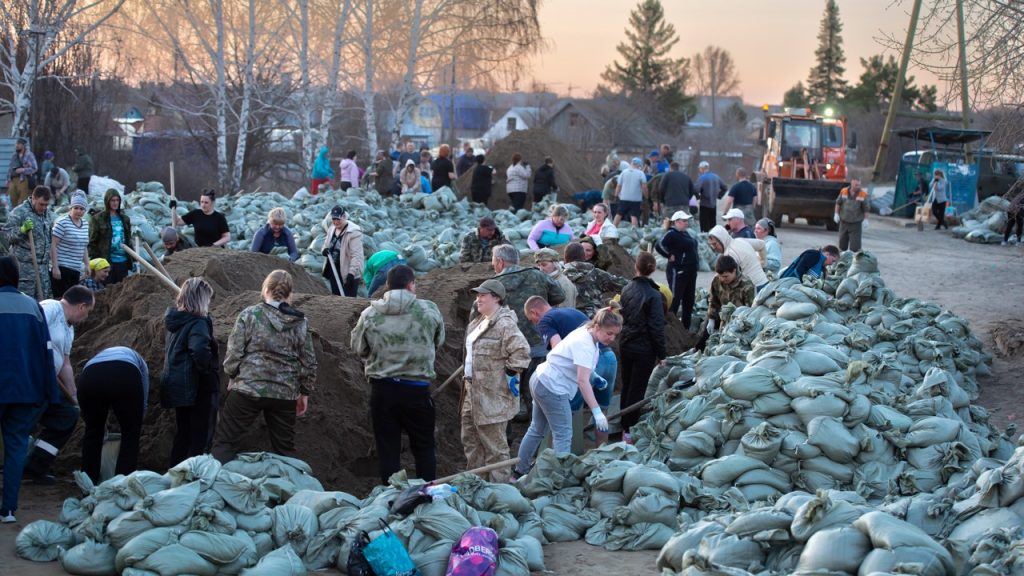Severe flooding in Russia’s Kurgan and Orenburg regions, along the border with Kazakhstan, has led to more than 5,000 properties being flooded and 15,000 people being evacuated. The Ural River in the Orenburg region has seen water levels gradually decreasing over the past few days, but 12,000 homes remain flooded. In the Tyumen region, more than 3,000 people have been evacuated with emergency workers keeping a close eye on dam conditions and distributing sandbags to mitigate flood damage.
Kazakh authorities have declared a state of emergency in 10 out of 17 regions in response to widespread flooding. Seven people have tragically lost their lives, and thousands of homes have been flooded in Kazakhstan. The causes of the flooding in the region have been attributed to a variety of factors, including large snow reserves melting, frozen soil preventing rain or melted snow absorption, and the release of water from a reservoir.
The situation in parts of Russia remains dire, with more than 12,000 homes submerged in water along the Kazakh border. Despite the gradual decrease in water levels in the Ural River, the damage is extensive, with thousands needing to be evacuated due to the flooding. Emergency crews are working around the clock to monitor and address the situation, including the distribution of sandbags to fortify at-risk areas and prevent further flooding.
In response to the crisis, both Russia and Kazakhstan have mobilized their emergency services and resources to assist affected populations. The scale of the flooding has had devastating consequences, leading to loss of life and widespread damage to homes and infrastructure. The cooperation between the two countries in responding to the crisis underscores the severity of the situation and the need for swift action to mitigate further harm.
The impacts of the flooding extend beyond property damage, with thousands of people being displaced and forced to evacuate their homes. The ongoing efforts of emergency workers to address the situation demonstrate the resilience and determination of those affected by the natural disaster. As both Russia and Kazakhstan continue to grapple with the aftermath of the flooding, the need for support and assistance from the international community remains crucial in facilitating recovery and rebuilding efforts.
The challenges posed by the flooding underscore the urgent need for proactive measures to address climate change and its effects on vulnerable regions. As extreme weather events become more frequent and severe, it is essential for governments and communities to prioritize disaster preparedness and resilience measures to protect lives and livelihoods. By working together to address the root causes of flooding and implement sustainable solutions, countries can build a more resilient future in the face of climate-related challenges.












